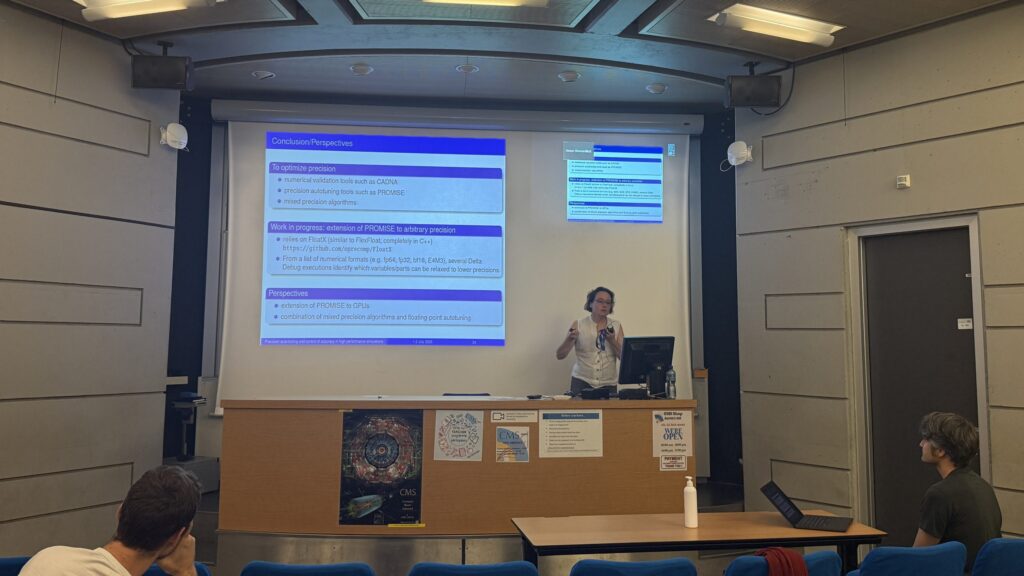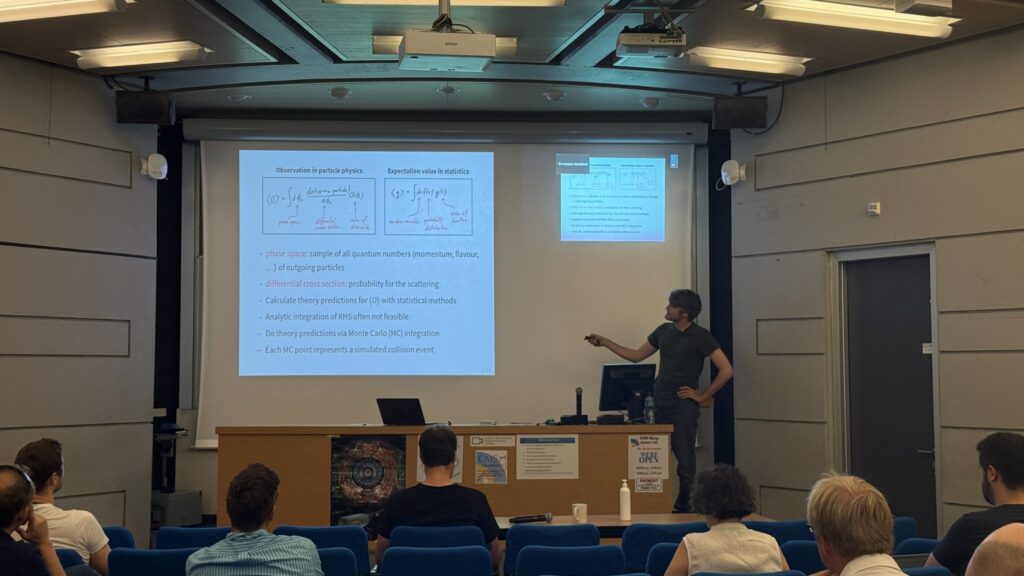Precision Matters: Unlocking the Future of Floating Point at CERN

On 1–2 July 2025, the “Optimising Floating Point Precision” Workshop, co-organized by Next Generation Triggers and CERN Openlab, took place at CERN, gathering experts to explore how floating point operations — in single, double, or higher precision — can be optimized for future high-energy physics applications in heterogeneous computing environments.
With increasing demands in data volume and precision at the LHC, the workshop addressed how compute accelerators like GPUs can be leveraged for scientific algorithms that rely heavily on floating point operations. Discussions centered around architectural trends, emulation techniques, and precision-aware algorithm design — with a focus on maximizing performance without compromising accuracy.
The first day opened with perspectives from the experimental and theory communities, followed by presentations on tools and techniques from NVIDIA, AMD, and academic contributors. Talks explored floating point emulation, extended precision accelerators, and domain-specific use cases, concluding with a lively cocktail reception.


The second day brought further insights into numerical stability, mixed-precision strategies, and AI-driven developments in GPU technology. Speakers introduced frameworks and methods for auto-tuning precision, evaluating floating-point error, and efficiently simulating physics processes — highlighting solutions such as tensor network adaptations, adaptive quantization, and emulated FP64 arithmetic.
From hardware trends to algorithmic innovations, the workshop fostered meaningful exchanges on how to align precision with performance in tomorrow’s computing landscape.
You can access all the presentations by clicking here.